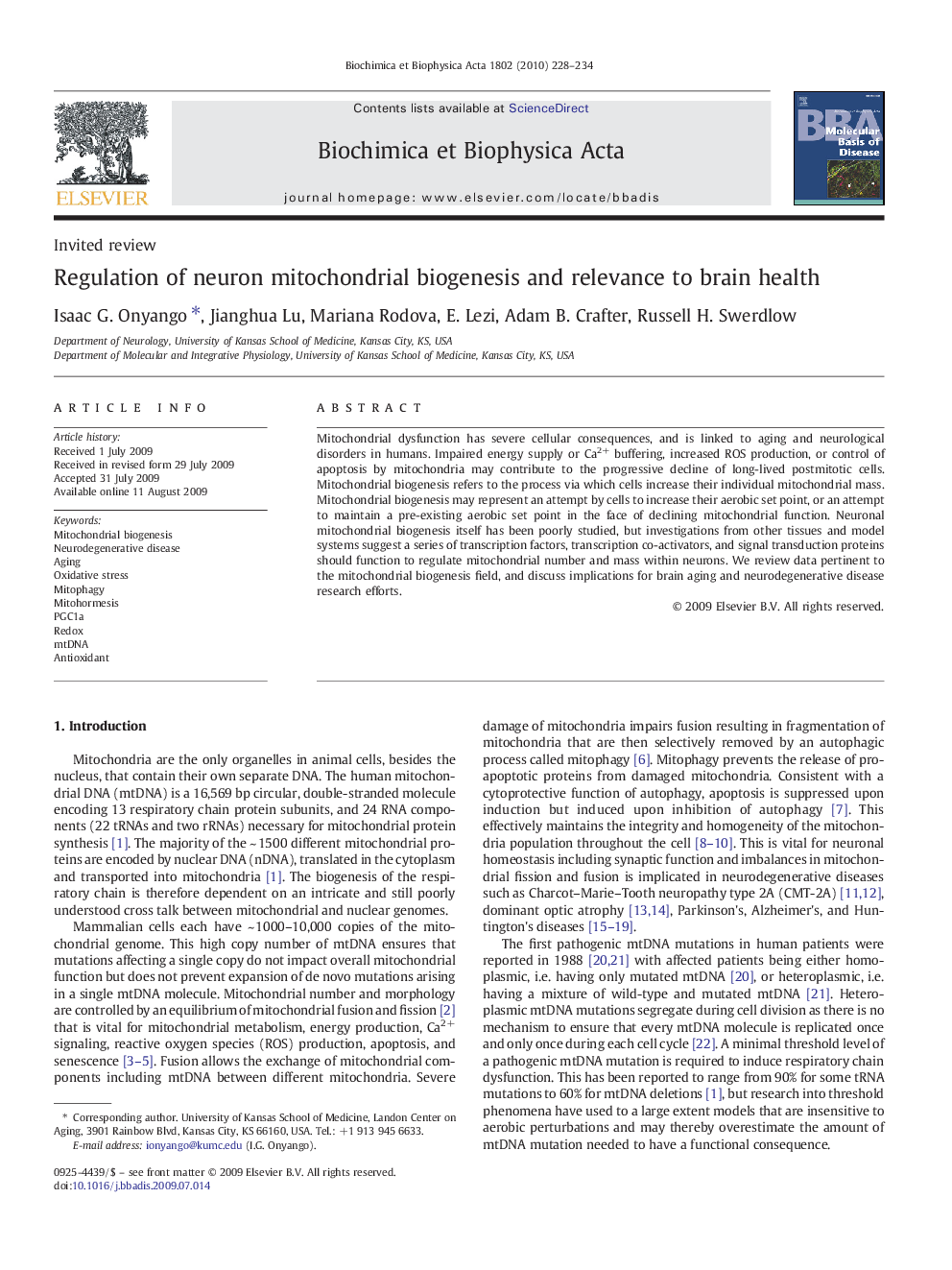| Article ID | Journal | Published Year | Pages | File Type |
|---|---|---|---|---|
| 1905435 | Biochimica et Biophysica Acta (BBA) - Molecular Basis of Disease | 2010 | 7 Pages |
Mitochondrial dysfunction has severe cellular consequences, and is linked to aging and neurological disorders in humans. Impaired energy supply or Ca2+ buffering, increased ROS production, or control of apoptosis by mitochondria may contribute to the progressive decline of long-lived postmitotic cells. Mitochondrial biogenesis refers to the process via which cells increase their individual mitochondrial mass. Mitochondrial biogenesis may represent an attempt by cells to increase their aerobic set point, or an attempt to maintain a pre-existing aerobic set point in the face of declining mitochondrial function. Neuronal mitochondrial biogenesis itself has been poorly studied, but investigations from other tissues and model systems suggest a series of transcription factors, transcription co-activators, and signal transduction proteins should function to regulate mitochondrial number and mass within neurons. We review data pertinent to the mitochondrial biogenesis field, and discuss implications for brain aging and neurodegenerative disease research efforts.
